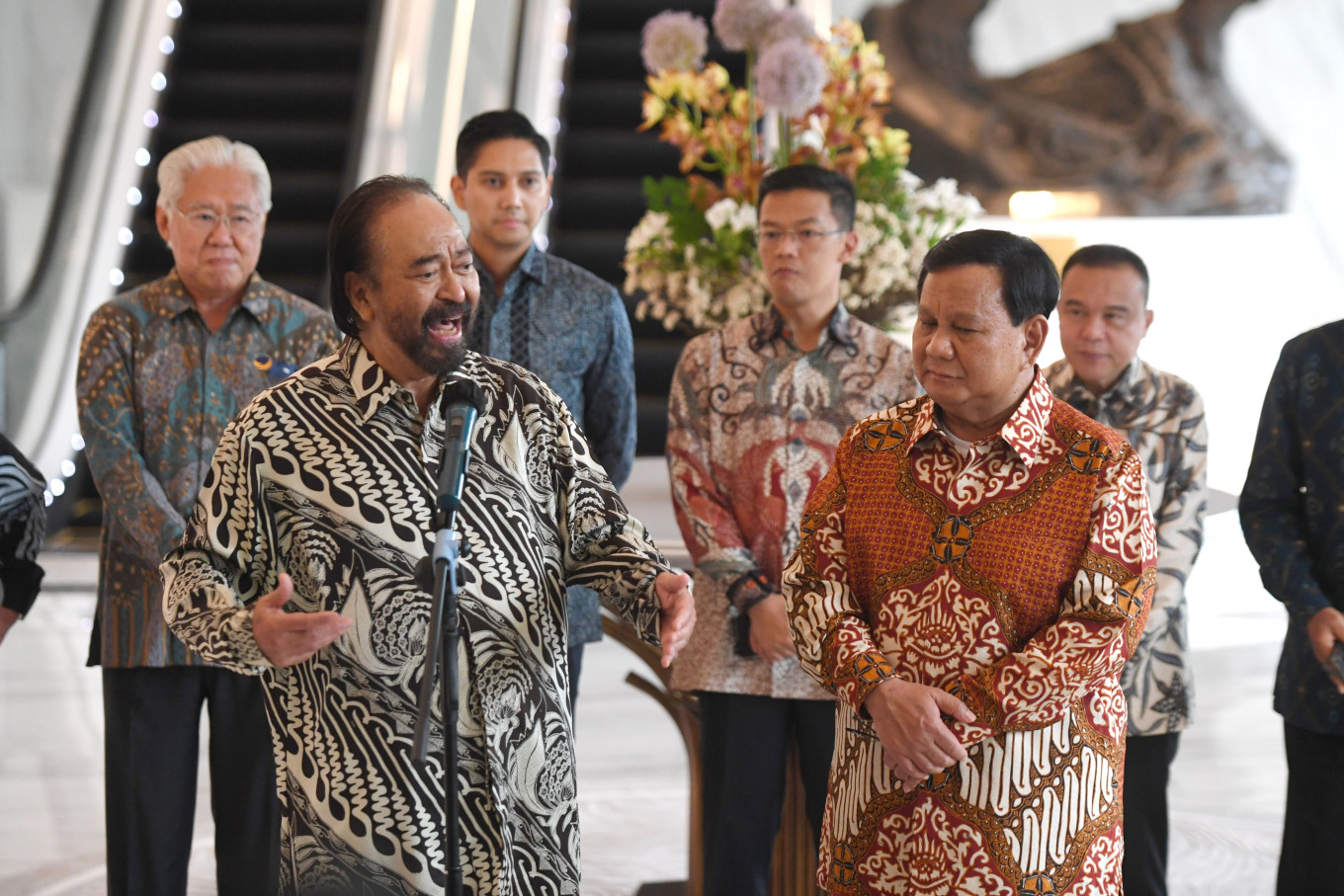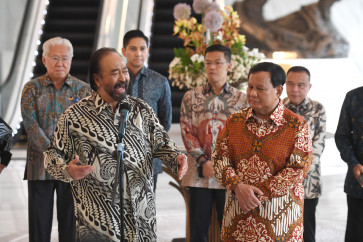Popular Reads
Top Results
Can't find what you're looking for?
View all search resultsPopular Reads
Top Results
Can't find what you're looking for?
View all search results2024 campaigns: What political parties might get out of early alliances
As the 2024 campaign season sets to open soon, here is a broad look at the pros and cons of forming electoral alliances early.
Change text size
Gift Premium Articles
to Anyone

As the curtain prepares to rise on the 2024 campaign season, political parties have already started to form alliances some 20 months before the polls, a move that experts say has advantages and disadvantages for politicians and voters alike.
The Golkar Party, the National Mandate Party (PAN) and the United Development Party (PPP) were the first to take the plunge last month, when the three formed a surprise alliance, the United Indonesia Coalition (KIB).
Read also: Golkar-PAN-PPP alliance keeps options open, hints at nominating popular governors
Reports have also emerged that the Prosperous Justice Party (PKS) and the National Awakening Party (PKB) are moving to form their own alliance, while other party leaders have begun meeting with their peers and erstwhile rivals to explore possible electoral alliances.
Under the current electoral threshold, a party or an alliance of parties must secure at least 20 percent of seats in the House of Representatives to nominate a presidential candidate.
With a pool of around 25 percent of House seats, the KIB can now nominate a candidate, while a possible PKS-PKB alliance would claim around 18 percent of House seats, meaning it would need at least one more party to meet the threshold.

Why are parties forming alliances now?
Your Opinion Matters
Share your experiences, suggestions, and any issues you've encountered on The Jakarta Post. We're here to listen.
Thank you
Thank you for sharing your thoughts. We appreciate your feedback.

















